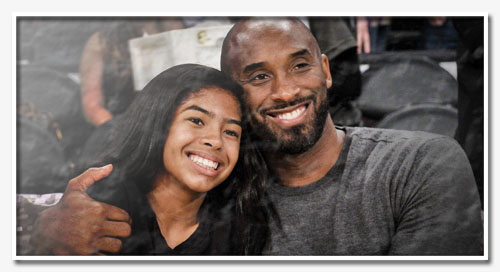Thank You, Kobe Bryant
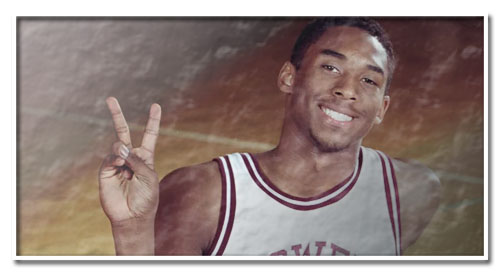
When Kobe Bean Bryant was drafted in June of 1996, I was approaching 13 years old. Becoming a teenager was a big deal, but to say that I was nearly as old as my new favorite player was even bigger, because quite frankly, I wanted to be like him. With Charles Barkley nearing the end of his career, and Michael Jordan just two seasons from leaving the Chicago Bulls, I turned my attention to the 17-year old phenom that would pattern his game after Jordan. He was all over television, featured on ESPN, and coming straight out of high school with a similar issue that Kevin Garnett had just a year earlier: he had an extreme amount of talent that created immense pressure to perform well. One difference between the two? The bright lights of Los Angeles. The LA Lakers did not draft Bryant; instead, they traded away a very talented center, Vlade Divac, to acquire him from the Charlotte Hornets on draft day. The organization was excited to bring him aboard and sign Shaquille O’Neal soon after, and while Kobe didn’t see much of the floor in his first NBA season, he would begin to make an impact in his second. I was instantly hooked, and after rooting only for the teams that Barkley would play for (Sixers, Suns, Rockets), I gravitated to the purple and gold of the Lakers, who eventually became the franchise I pull for today.
Thank you, Kobe Bryant.
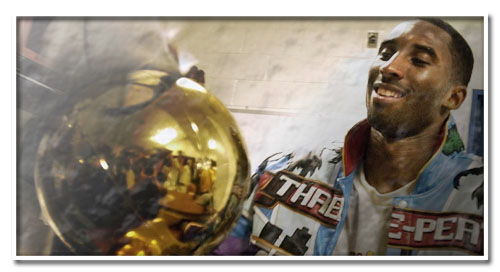
Being a fan of the Lakers has had its ups and downs, and that’s being generous. From the Hollywood-driven drama between Kobe and Shaq, the 2004 NBA Finals loss to the Detroit Pistons, Kobe’s Achilles tear, up to our disappointing season last year despite the acquisition of LeBron James, it has been a roller coaster for all of us from Laker Nation. However, those negative roadblocks were met with incredible highlights and five championships led (some co-led!) by Kobe himself. There’s no forgetting his 81-point masterpiece against the Toronto Raptors, or him outscoring the Dallas Mavericks through three quarters, 62-61. How about our three-peat? We can never forget our Kobe, Pau Gasol and Lamar Odom trio, and Ron Artest (oops, Metta World Peace) accepting the role of defensive specialist. Beating the Boston Celtics in the 2010 NBA Finals for our 16th championship was nothing short of glorious for our franchise, and Kobe’s 60-point performance in his final game — with an outstanding comeback late in the 4th — capped off a 20-year career that no one could have written any better.
Thank you, Kobe Bryant.
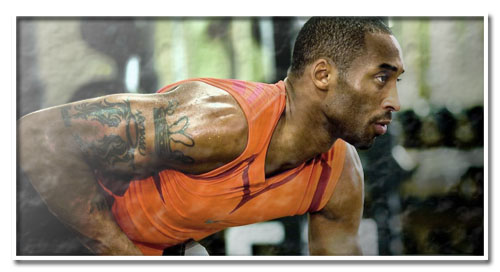
If we ignore the huge games, statistics and championships, and we look at his work ethic and competitiveness, Bryant is unparalleled. He and Michael Jordan shared the same merciless fire, but Kobe separated himself from everyone else with his training. In fact, it wasn’t until later in his career that fans began to understand just how mental he was when it came to workouts and watching game footage. If there was one player in the gym at 5:30 a.m., putting up 1,000 jumpers before practice, it was Kobe. Who learns how to tap dance just to work on their footwork? Kobe. Who finished a three-hour workout just as every member of Team USA was getting up for early morning practice? What player runs through the triangle offense for hours, at night in a pitch black gymnasium, but without a basketball in his hands? Calling a younger Dwyane Wade and asking for tips, or utilizing a veteran and legend in Hakeem Olajuwon to improve his footwork, there wasn’t anything that was out of bounds in his quest to become the best player in the world. His fans seemed to follow suit, eventually coining the phrase “Mamba Mentality.” On the court, it was this mindset that fueled his killer instinct, a hunger to not only win games, but to feast on the opposing defense and force his opponents to remember who he was. There’s no doubt that Kobe, through his work ethic, was able to provide many athletes of all shapes and sizes with a shot in the arm to accomplish any goals they set their mind to in their respective sport(s).
Thank you, Kobe Bryant.
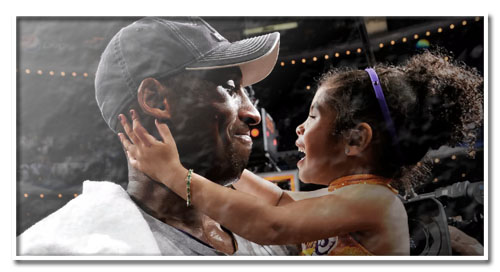
Having the Mamba Mentality in the gym helped many players tap into their potential and provide them with opportunities they may not have had without working diligently to uncover them, but off the court, it meant something different. After his retirement, that mentality opened a new chapter for Bryant, as he won an Oscar in 2018 for his animated short documentary, “Dear Basketball,” and became heavily involved in the WNBA and girls basketball. Practicing the Mamba Mentality outside of the sports scene means that, much like Kobe, your actions are put into place to help others more than anything; to do everything you possibly can to produce a smile, touch a soul, or be a role model to others in need of guidance. Not only does it promote happiness to those around you, it can also change your life for the better by improving, and sometimes reconstructing, your relationships with family and friends, as well as meeting new people. For me, it meant seeking motivation while in the face of adversity; not giving up, but getting up. With Type 1 Diabetes, being blind in one eye, kidney failure and a debilitating disease (CIDP) that may keep me from playing the sport I love, it was my wife and daughter that provided me with the incentives to put in the hard work to get my health back on track (yes, I’m a #girldad).
Thank you, Kobe Bryant.
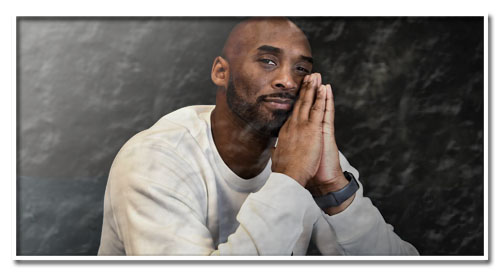
It’s been three months since I plummeted onto my couch, watching ESPN and scanning my Twitter feed, blown away by the news. It wasn’t real at first…and then, suddenly, it was. How could this happen to someone who a lot of us felt was invincible? If that wasn’t enough, along with the others who tragically passed away in the crash, Gianna Bryant (Kobe’s daughter) was with him, and just the thought of that hit home, tremendously; there was absolutely no way daddy was losing his Gigi. The challenge to succeed off the court is what propelled him into being this larger-than-life role model for more than just his fans, and partially due to his most recent efforts to be productive and successful outside of the sport, his death affected millions. At his best, Kobe was not only a basketball legend, but an inspiration to me and to others who are dedicated to chasing greatness — a high school kid looking to go pro, a father trying to keep up with his daughters, a professional athlete wanting to be the best, a retired athlete finishing one story and starting another — anyone and anything, for that matter.
“To be an event, every single night. Something witnessed. Not just watched. I had a different drive. The kind that made people uneasy. Some people wanted me to come back down to earth. To come down to their level. To relax. But I couldn’t. It wasn’t in my DNA. Because to go where others have never gone, you have to do what others have never done.”
– Kobe Bryant, on leaving his mark on the game
That drive, Kobe, is what produced two different jerseys hanging in the rafters at Staples Center. Your DNA is what caused young athletes from around the globe buying your merchandise and wanting to be you. Your quest to be the greatest of all-time is the reason why you will always be remembered as a legendary basketball player. Finally, Kobe, it’s you that changed our lives, and because of that, you will never be forgotten. Thank you, Kobe Bryant.
What can I say? Mamba out.

